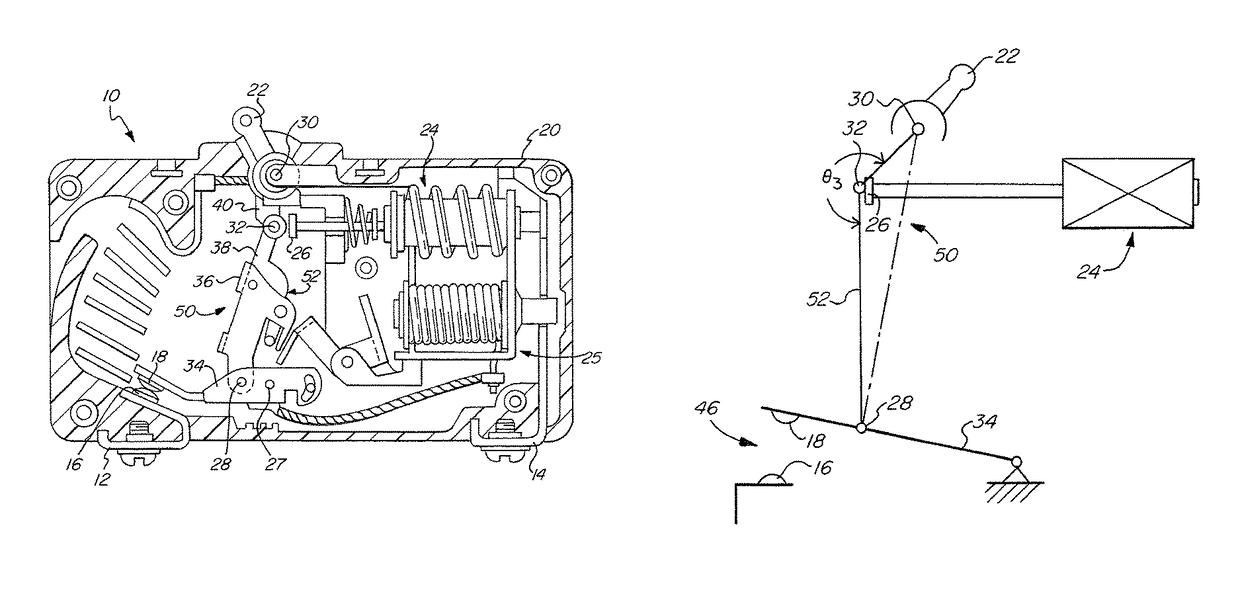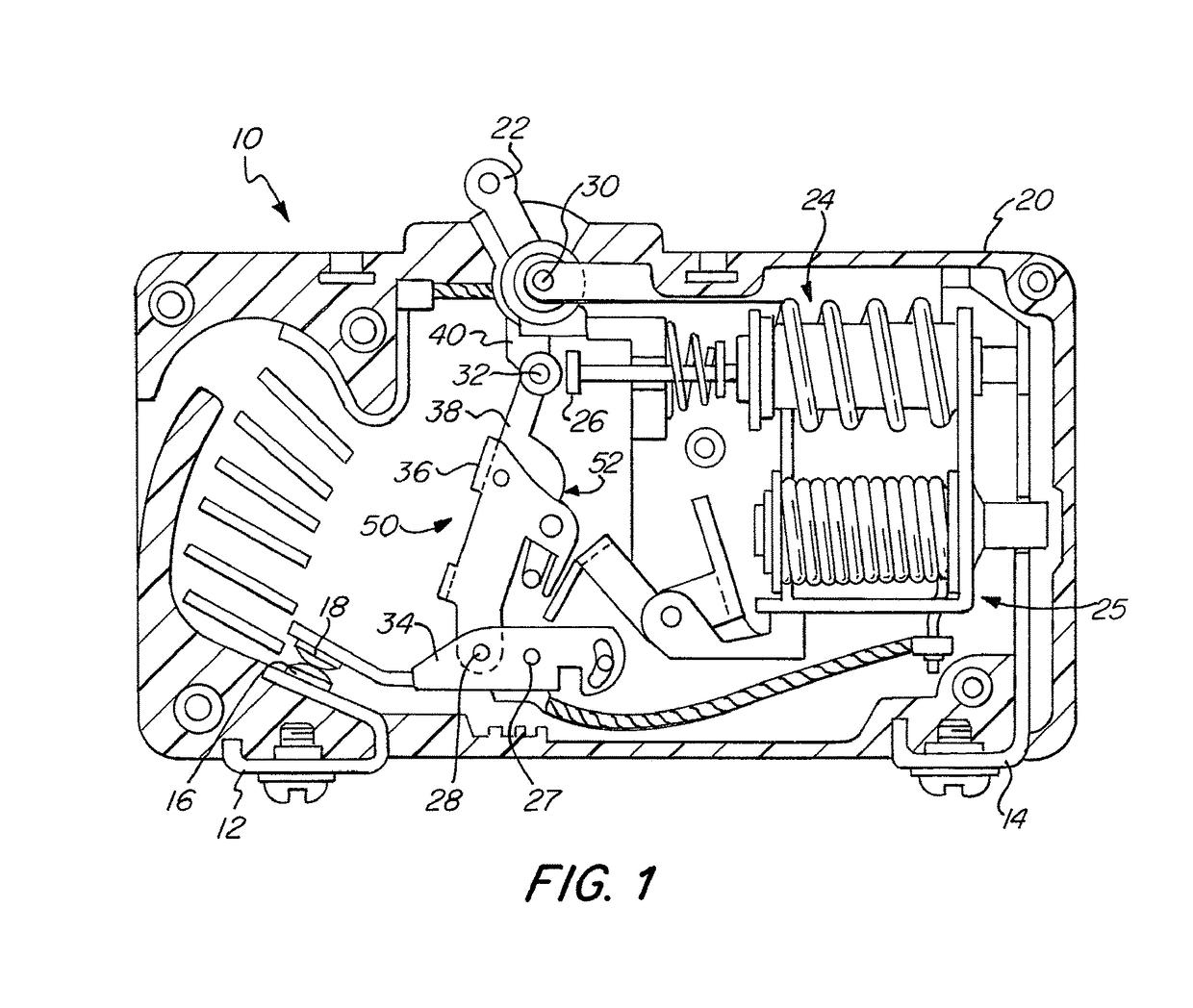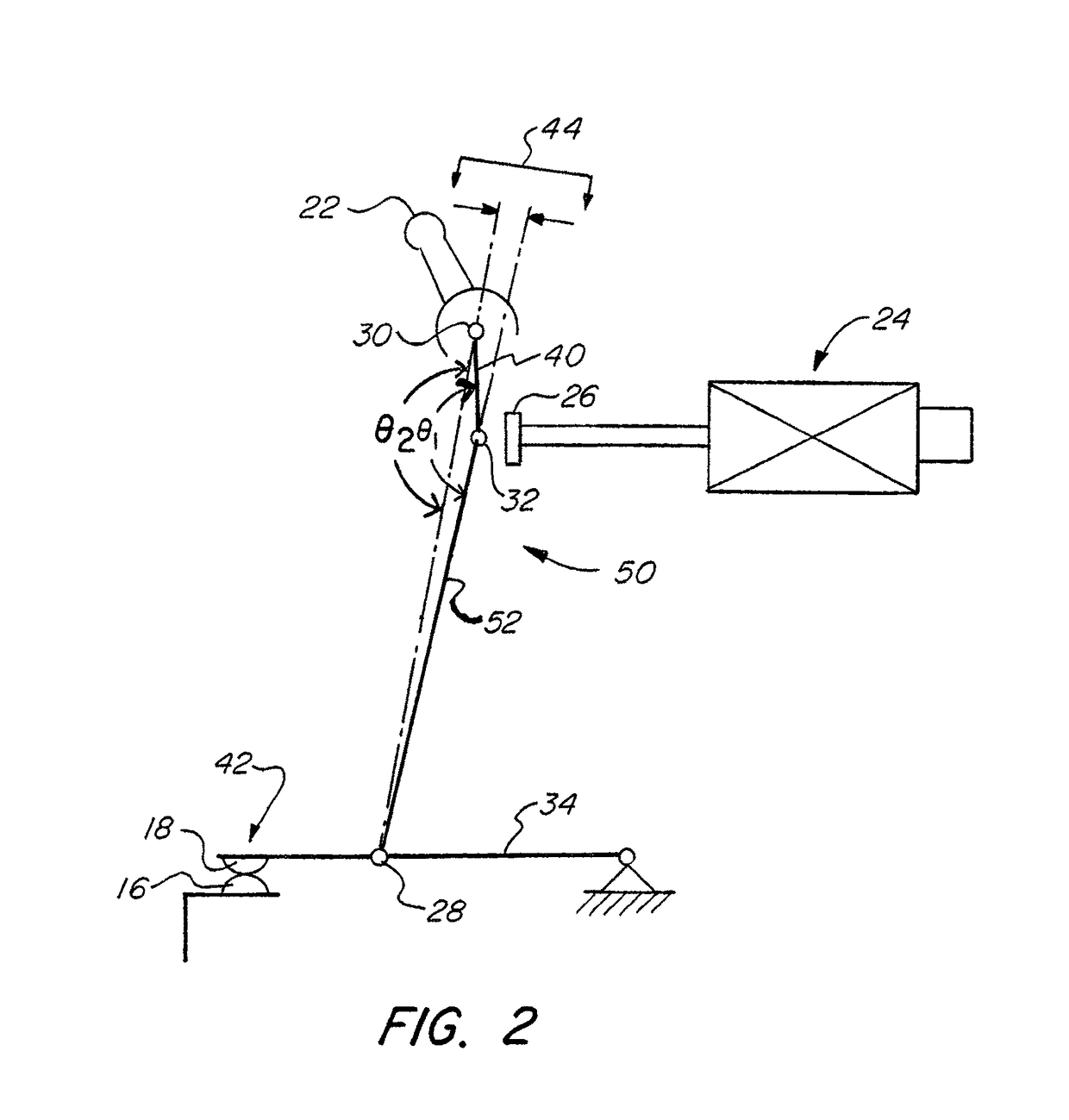Circuit breaker with current limiting and high speed fault capability
a circuit breaker and current limit technology, applied in the field of circuit breaker, can solve the problems of damage to the electrical distribution system itself and the connected equipment, and increasing the amount of time the person is in the offi
- Summary
- Abstract
- Description
- Claims
- Application Information
AI Technical Summary
Benefits of technology
Problems solved by technology
Method used
Image
Examples
Embodiment Construction
[0035]The exemplary embodiments of the present invention may be further understood with reference to the following description and the related appended drawings, wherein like elements are provided with the same reference numerals.
[0036]The exemplary embodiments of the present invention are related to a device capable of opening an electrical circuit very rapidly in the event of a fault or overcurrent condition. Specifically, the device uses a multiple solenoids to open the contacts in a circuit breaker, each solenoid functioning differently such that the circuit breaker is adapted to properly function under multiple different conditions. The exemplary embodiments are described with reference to a circuit breaker, but those skilled in the art will understand that the present invention may be implemented on any electrical device that has electrical contacts that can be opened and closed.
[0037]As best seen in FIG. 1 (FIG. 1), a circuit breaker 10 according to one embodiment of the pres...
PUM
 Login to View More
Login to View More Abstract
Description
Claims
Application Information
 Login to View More
Login to View More - R&D
- Intellectual Property
- Life Sciences
- Materials
- Tech Scout
- Unparalleled Data Quality
- Higher Quality Content
- 60% Fewer Hallucinations
Browse by: Latest US Patents, China's latest patents, Technical Efficacy Thesaurus, Application Domain, Technology Topic, Popular Technical Reports.
© 2025 PatSnap. All rights reserved.Legal|Privacy policy|Modern Slavery Act Transparency Statement|Sitemap|About US| Contact US: help@patsnap.com



